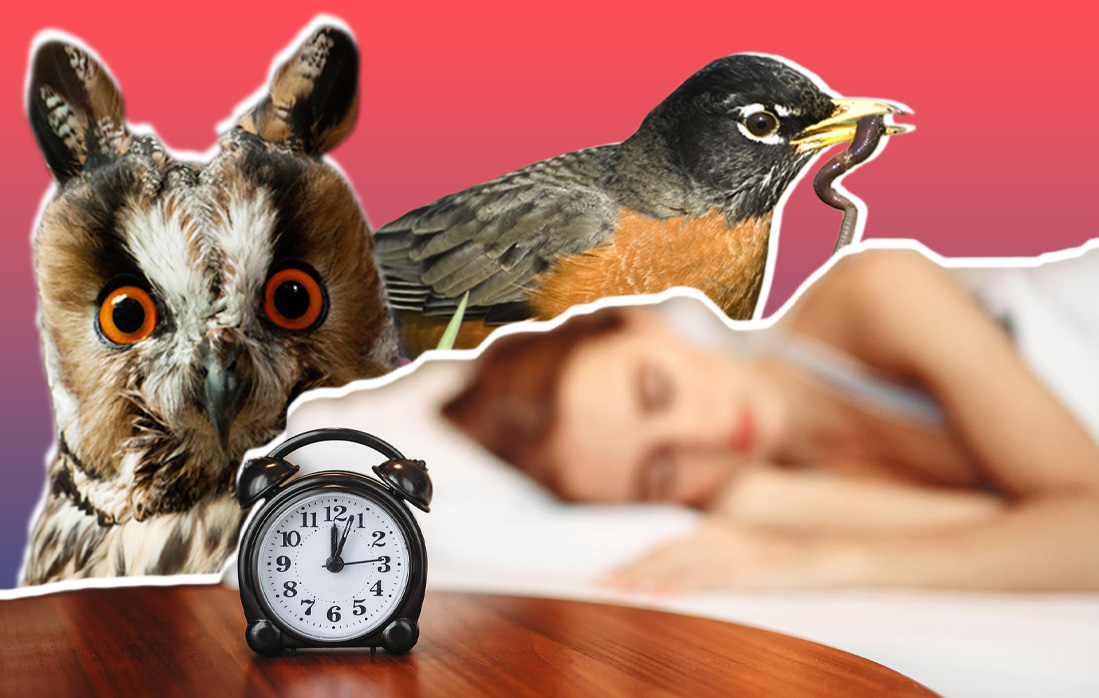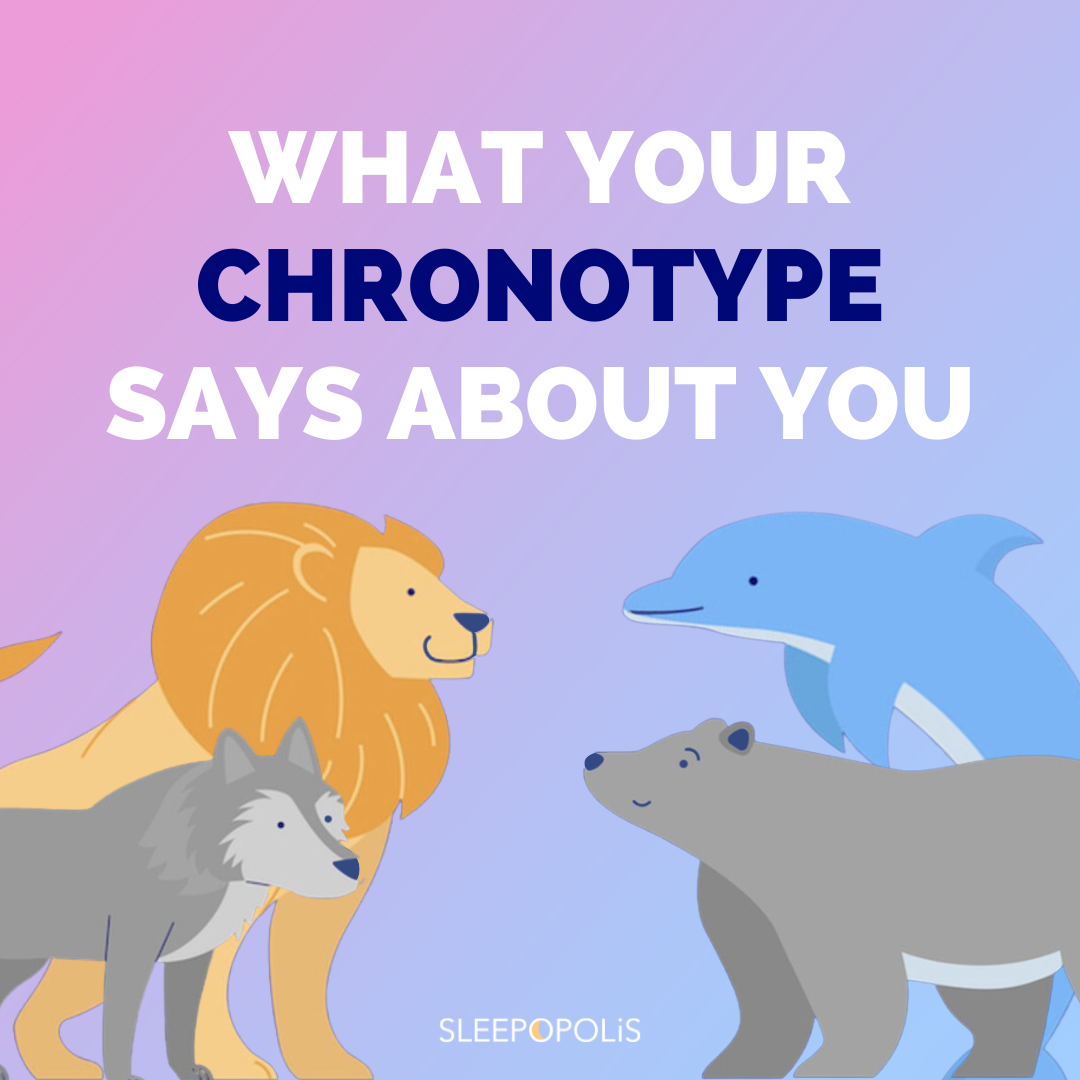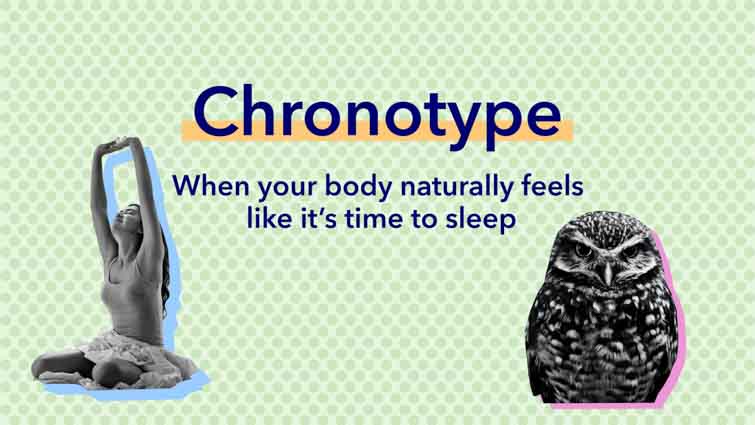
In case you haven’t heard, sleep is the third pillar of health. (1) And when we don’t get enough of it, or the quality isn’t up to snuff, irritability, fatigue, and impaired memory are likely over the short term. Prolonged sleep issues, however, can lead to more severe and chronic conditions like high blood pressure, diabetes, heart disease, and dementia. (2)
While there is a substantial amount of research linking poor sleep to adverse health outcomes, new research out of Penn State’s College of Health and Human Development pulls the covers back a little further. The study, published earlier this month in the journal Psychosomatic Medicine, identified four distinct sleep phenotypes and examined their changes over time as well as their connection to the sleepers’ risk of chronic health conditions. (3)
Four Sleep Phenotypes
Pouring over the health records of 3,683 midlife adults in the United States, researchers analyzed the sleep habits and chronic health conditions of the participants across two different points in time — 10 years apart. Additionally, the study participants self-reported their sleep health in terms of regularity, satisfaction, alertness, efficiency, and duration) as well as the number and type of chronic conditions.
In the end, the study identified four sleep phenotypes:
- Good sleepers
- Nappers
- Weekend catch-up sleepers
- Insomnia sleepers
Researchers found that out of the four phenotypes identified, insomnia sleepers and nappers were the highest risk groups, with a 72-188 percent increased risk for heart disease, diabetes, and depression. Nappers, meanwhile, had a higher risk of diabetes and cancer, and weekend catch-up sleepers had no risk of chronic conditions.
In another point of interest, researchers found that 77 percent of sleepers maintained their sleep phenotype over the 10 years — nappers and insomnia sleepers were the most consistent of the bunch.
Why Are Sleep Habits So Hard to Change?
Soomi Lee, the study’s lead researcher and associate professor of human development and family studies at Penn State, told Science Daily that the results of the study may “suggest that it is very difficult to change our sleep habits because sleep health is embedded into our overall lifestyle.” (4)
Dr. Alison Kole, MD, MPH, FCCP, FAASM, a Board-Certified Sleep, Pulmonary, and Critical Care physician and host of the Sleep Is My Waking Passion podcast, says, “Any habit is difficult to change (look at smokers, for example). Human nature tends to favor the familiar and shy away from anything new. Ultimately, she says, “The longer one has a habit (such as poor sleep habits), the harder it is to unlearn.”
Kole adds, “When it comes to insomnia, sleep habits can be even trickier because of the judgment that goes along with it…the more you work to have better sleep, the more elusive it is. [When people come to] associate the bed with worrying about sleep rather than as a sanctuary for sleep, that can lead to maladaptive thoughts about who you are, the “I am a bad sleeper” type of mentality. They end up feeling inadequate or bad that they don’t sleep well, as though it is somehow their fault, they develop anxiety about sleep, and all of this ultimately causes the cycle to perpetuate itself.”
How Can You Make Changes to Your Sleep Habits?
In terms of how to make changes to your sleep habits, Kole says, “Sleep hygiene has clearly been documented to not be effective as the only approach.” In fact, the AASM has insomnia guidelines that clearly delineate as much. (5) So the sleep phenotypes mentioned in the study, good sleepers, insomnia sleepers, and catch up on the weekend sleepers, and nappers, would not likely respond just to being told about sleep hygiene.”
For many insomnia sleepers, she says, “It’s about a complete approach — the most evidence-based being cognitive behavioral therapy for insomnia (CBTi), which incidentally does have a sleep hygiene component.” (6)
Kole also reminds us that “An occasional night of bad sleep does not make you an insomnia sleeper and is unlikely to be dangerous to your health long-term. Chronic insomnia, meaning when insomnia occurs three or more nights a week, lasts more than three months, and cannot be fully explained by another health problem, is the real issue in terms of risk to your health.” (7)
Tips for Improving Sleep Habits
While she offers the following tips for improving your sleep habits, Kole notes that “Sleep is deeply personal and therefore it requires a personalized approach that also incorporates evidence-based tools.”
Be Realistic about Sleep Needs and Goals
“Establishing a psychologically acceptable wake-up time that’s also realistic is paramount,” says Kole. “Once you establish a wake-up time that can be maintained seven days per week, start working backward” (aka adjust your bedtime accordingly to get your full 8 to 9 hours and no more). She adds, “Using sleep restriction (less time in bed) to maximize sleep efficiency (the time in bed you are sleeping) is ultimately what will start to get insomnia under control.” (6)
Be Wary of Revenge Bedtime Procrastination
“Some people don’t leave enough room in their day for “me” time,” says Kole. When that happens, revenge bedtime procrastination can be an issue.” Despite knowing they need sleep, most people stay up late just so they can feel satisfied that they have time alone for a few minutes. This is a classic issue for moms, especially if they also work and do the lion’s share of work at home,” she says.
Dig Deeper
Kole warns, “Let’s also not forget that what many perceive to be “insomnia” may, in fact, be a hidden sleep disorder such as Obstructive Sleep Apnea or Restless Leg Syndrome that is disrupting their sleep at night.” Anyone who thinks their sleepless nights may be more than a bout of transient insomnia “should start keeping a sleep diary or consider using a sleep tracker to get a sense of any trends with their sleep.” she adds.
For those leaning into sleep trackers, Kole cautions that “technology is only a tool; it’s not meant to be perfect or exact.” She says people should still pay attention to their own perceptions of sleep, not just what the sleep tracker tells them. This can trigger Orthosomnia, the obsession with sleep stats that can further worsen the problem.
Manage Your Mindset
And finally, Kole says insomnia sleepers should hold a negative perception of themselves.
“The more you worry about sleep, the more elusive it will become,” she says. “However, if you believe you can sleep better — you will.

Can You Become a Morning or Night Person? Experts Weigh In.

Babies Will Change Your Life, But Did You Know They Can Change Your Sleep Chronotpye, Too?

Chronotypes Quiz

Chronotypes: Understanding Types & Impact on Sleep
Sources
1. Clement-Carbonell V, Portilla-Tamarit I, Rubio-Aparicio M, Madrid-Valero JJ. Sleep Quality, Mental and Physical Health: A Differential Relationship. Int J Environ Res Public Health. 2021;18(2):460. Published 2021 Jan 8. doi:10.3390/ijerph18020460
2. Medic G, Wille M, Hemels ME. Short- and long-term health consequences of sleep disruption. Nat Sci Sleep. 2017;9:151-161. Published 2017 May 19. doi:10.2147/NSS.S134864
3. Lee, Soomi PhD*,1; Smith, Claire E. PhD2; Wallace, Meredith L. PhD3; Buxton, Orfeu M. PhD4; Almeida, David M. PhD1; Patel, Sanjay R. MD, MS5; Andel, Ross PhD6,7. 10-year Stability of an Insomnia Sleeper Phenotype and Its Association with Chronic Conditions. Psychosomatic Medicine ():10.1097/PSY.0000000000001288, February 16, 2024. | DOI: 10.1097/PSY.0000000000001288
4. (March 12, 2024). Researchers identify distinct sleep types and their impact on long-term health. Science Daily. https://www.sciencedaily.com/releases/2024/03/240312133923.htm
5. Clinical practice guideline for the pharmacologic treatment of … (n.d.). https://jcsm.aasm.org/doi/10.5664/jcsm.6470
6. Rossman J. Cognitive-Behavioral Therapy for Insomnia: An Effective and Underutilized Treatment for Insomnia. Am J Lifestyle Med. 2019;13(6):544-547. Published 2019 Aug 12. doi:10.1177/1559827619867677
7. Kaur H, Spurling BC, Bollu PC. Chronic Insomnia. [Updated 2023 Jul 10]. In: StatPearls [Internet]. Treasure Island (FL): StatPearls Publishing; 2024 Jan-. Available from: https://www.ncbi.nlm.nih.gov/books/NBK526136/
8. Kole, Alison. Author interview. March 20, 2024.



























